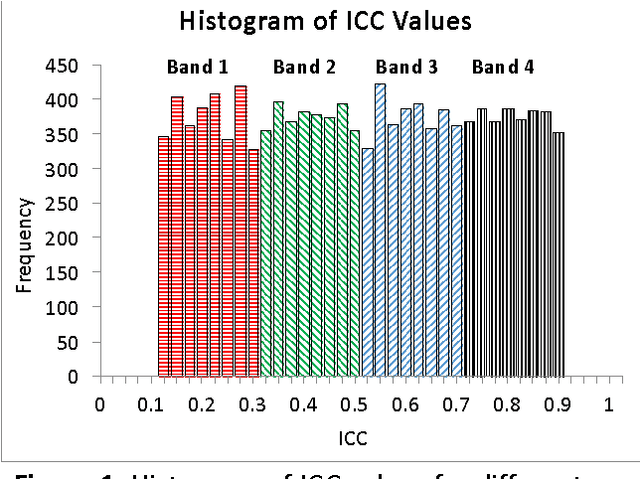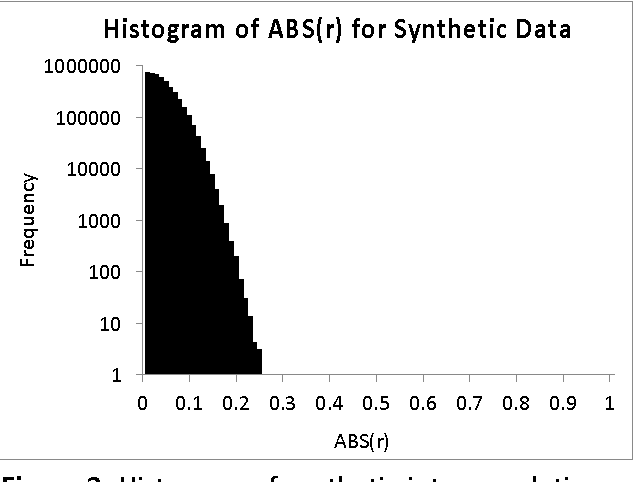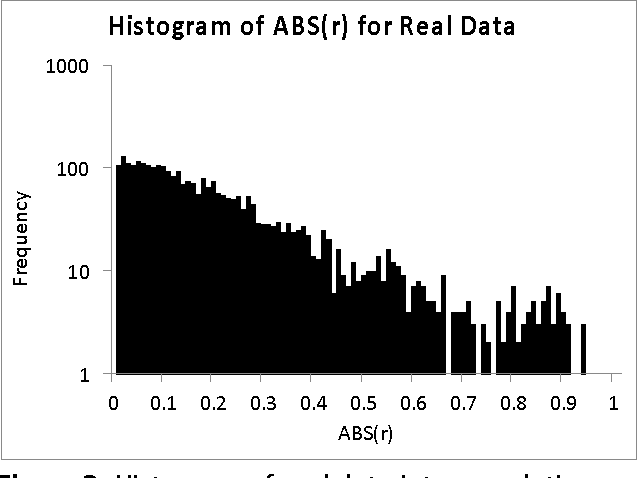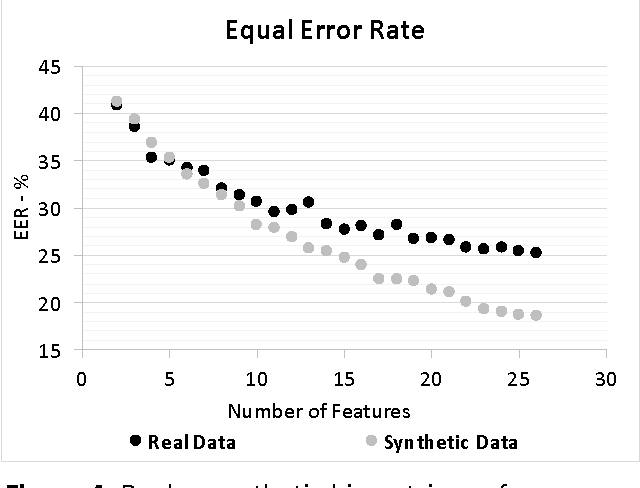Synthetic Database for Evaluation of General, Fundamental Biometric Principles
Paper and Code
Jul 29, 2017



We create synthetic biometric databases to study general, fundamental, biometric principles. First, we check the validity of the synthetic database design by comparing it to real data in terms of biometric performance. The real data used for this validity check was from an eye-movement related biometric database. Next, we employ our database to evaluate the impact of variations of temporal persistence of features on biometric performance. We index temporal persistence with the intraclass correlation coefficient (ICC). We find that variations in temporal persistence are extremely highly correlated with variations in biometric performance. Finally, we use our synthetic database strategy to determine how many features are required to achieve particular levels of performance as the number of subjects in the database increases from 100 to 10,000. An important finding is that the number of features required to achieve various EER values (2%, 0.3%, 0.15%) is essentially constant in the database sizes that we studied. We hypothesize that the insights obtained from our study would be applicable to many biometric modalities where extracted feature properties resemble the properties of the synthetic features we discuss in this work.
 Add to Chrome
Add to Chrome Add to Firefox
Add to Firefox Add to Edge
Add to Edge